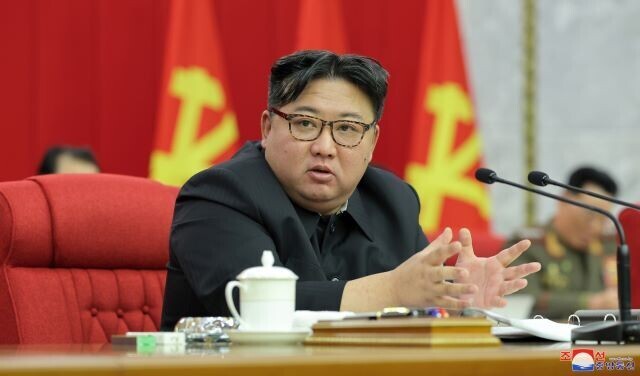In a bid to address chronic food shortages and economic inequality, North Korean leader Kim Jong Un has announced plans for an “industry revolution” in rural regions, focusing on the establishment of modernized factories nationwide. This initiative, unveiled as part of Kim’s “Regional Development 20×10 Policy,” aims to open advanced factories in at least 20 remote counties annually for the next decade.
Kim’s Economic Initiative:
At a groundbreaking ceremony for a new plant in Songchon County, located east of Pyongyang, Kim Jong Un reaffirmed his commitment to the “Regional Development 20×10 Policy.” This ambitious plan, outlined during a recent meeting of the Supreme People’s Assembly, seeks to revolutionize North Korea’s economic landscape by modernizing factories across the country.
Revolutionizing Rural Industry:
Kim emphasized the monumental significance of establishing modern industry factories in every city and county within the next decade. This initiative marks a pivotal moment in North Korea’s economic trajectory, with Kim envisioning a future characterized by enhanced productivity and economic prosperity in rural areas.
Military Involvement:
During the ceremony, Kim Jong Un entrusted a newly created military unit with the task of spearheading the implementation of the “Regional Development 20×10 Policy.” This move underscores the regime’s commitment to prioritizing economic development as a national imperative.
Addressing Economic Disparity:
The push for rural industrialization comes amid reports of widening economic disparities between urban elites and rural residents. North Korean defectors have highlighted the growing gap in access to resources, education, and healthcare between major cities like Pyongyang and the farming population in rural areas.
Impact of Sanctions and Natural Disasters:
North Korea’s economy has long been strained by international sanctions imposed over its weapons programs, compounded by seasonal impacts from natural disasters. Kim’s focus on modernizing the farming sector reflects a recognition of the need to bolster agricultural productivity to mitigate food shortages.
South Korea’s Observations:
South Korea’s unification ministry has noted a deepening economic gap between urban and rural populations, indicating that the disparity extends beyond basic necessities to include food rations, housing, and access to essential services like education and healthcare.
Kim Jong Un’s initiative to revolutionize rural industry underscores North Korea’s ongoing efforts to address economic challenges and reduce inequality. As the country embarks on this ambitious economic transformation, the success of the “Regional Development 20×10 Policy” will be closely watched both domestically and internationally.
















